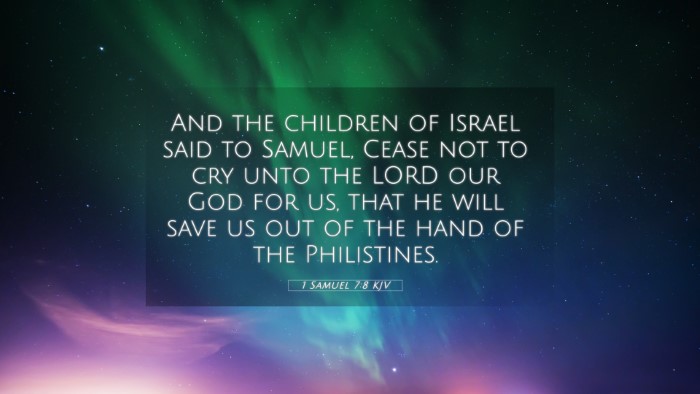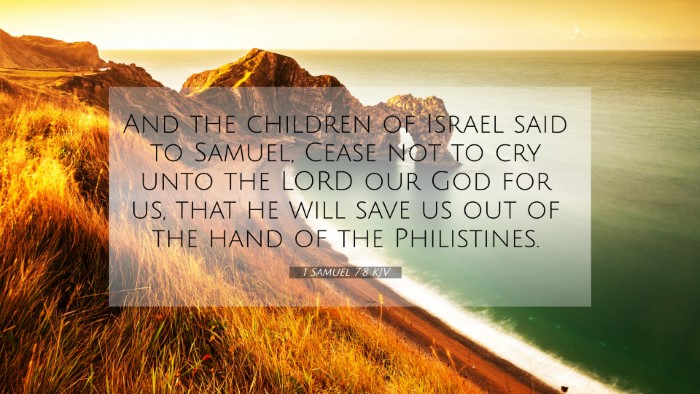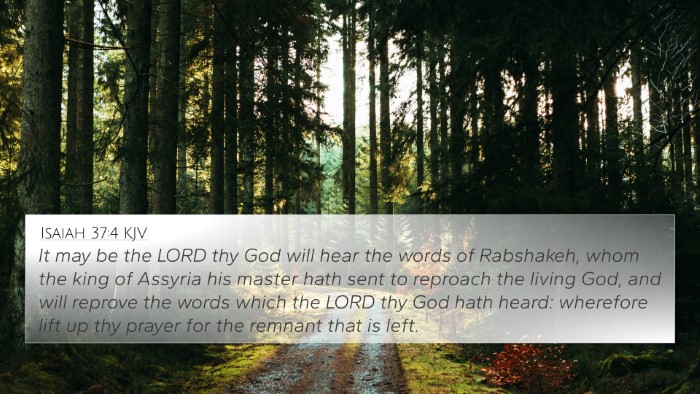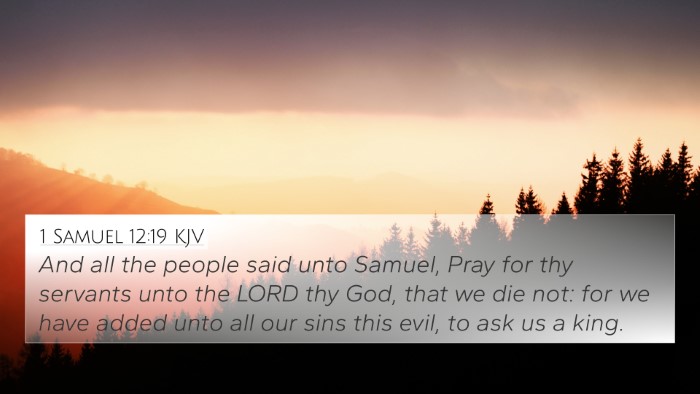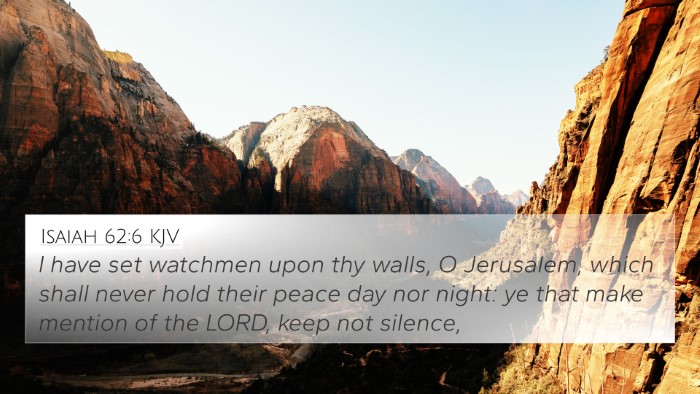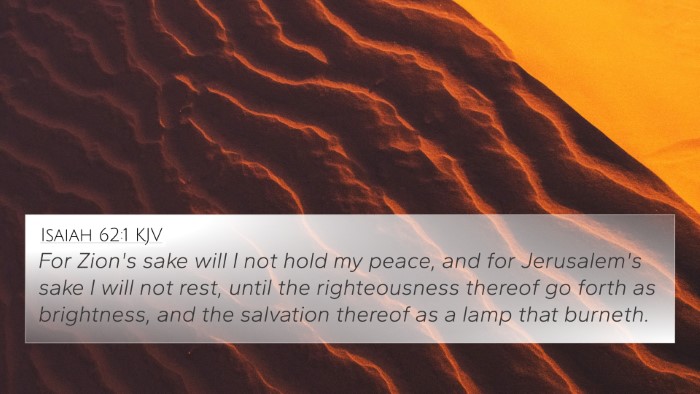Understanding 1 Samuel 7:8
1 Samuel 7:8 states: "And the children of Israel said to Samuel, 'Do not cease to cry out to the Lord our God for us, that He may save us from the hand of the Philistines.' This verse illustrates a pivotal moment in Israel's history, emphasizing the need for divine intervention and the role of prophets in mediating between God and His people.
Contextual Analysis
This passage occurs during a time of national crisis for Israel. The Philistines were oppressing the Israelites, and in their despair, they turned to the prophet Samuel for help. It reflects their recognition of God's power and their trust in Samuel as a mediator.
Key Themes
- Intercession: The importance of prayer and supplication.
- Divine Deliverance: God as savior in times of trouble.
- Prophetic Leadership: The role of prophets in guiding and pleading for the people.
Interpretative Insights
Matthew Henry notes how the Israelites show a recognition of their helplessness against the Philistines. Their request for Samuel's continued intercession signifies their understanding of God’s authority over their plight (Henry, Commentary on 1 Samuel 7). Albert Barnes emphasizes the Israelites' collective plea as a sign of unity and desperation, highlighting the necessity of humility before God (Barnes, Notes on the Old Testament). Adam Clarke points out that the interplay of human agency through Samuel and divine intervention illustrates a vital relationship in the faith of the people (Clarke, Commentary).
Related Bible Verse Cross-References
1 Samuel 7:8 can be connected to several other Bible verses that deepen our understanding.
- Exodus 17:8-13: The battle against the Amalekites highlights the need for divine aid through Moses' intercession.
- 1 Samuel 9:16: God identifies Samuel as a leader who will save Israel, reinforcing the role of prophets.
- Psalms 34:17: The Lord hears the cries of the righteous and delivers them from their troubles, echoing the theme of divine rescue.
- Isaiah 59:1: God's arm is not too short to save, illustrating His willingness to respond to His people's pleas for help.
- Jeremiah 33:3: God invites His people to call upon Him for answers and intimate guidance in times of need.
- Hosea 5:15: God speaks of His people seeking Him earnestly in their afflictions, portraying the natural human response to turn to God.
- James 5:16: The power of prayer and intercession among believers, reinforcing the concept of communal prayer for deliverance.
Thematic Connections
This verse underscores the connection between human desperation and divine intervention, a theme prevalent throughout Scripture. Understanding this relationship is enriched by linking it to verses that reflect upon the nature of prayer, intercession, and God's faithfulness.
Bible Concordance and Cross-Reference Tools
Those studying **1 Samuel 7:8** may benefit from various cross-referencing tools and methods to explore Bible verse connections. These tools help identify how this verse relates to others, revealing intricate themes and patterns in Scripture.
Tools for Bible Cross-Referencing
- Bible Concordance: A reference tool that lists words in the Bible and their contexts to find related verses.
- Cross-Reference Bible Guide: Provides scripture connections for deeper study and thematic exploration.
- Cross-Reference Bible Study Methods: Techniques such as thematic studies which explore relationships between verses.
- Bible Reference Resources: Online tools and physical texts that offer links between various passages.
Conclusion
In conclusion, **1 Samuel 7:8** reveals profound truths about human reliance on God and highlights the critical role of intercessory prayer in seeking divine help during crises. Through the examination of cross-references, thematic studies, and commentary insights, believers can gain a richer understanding of this passage, encouraging them to explore the connections between various Scriptures.

